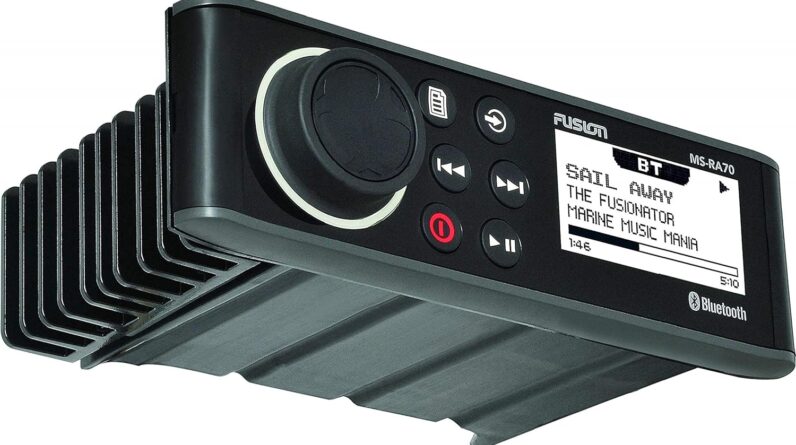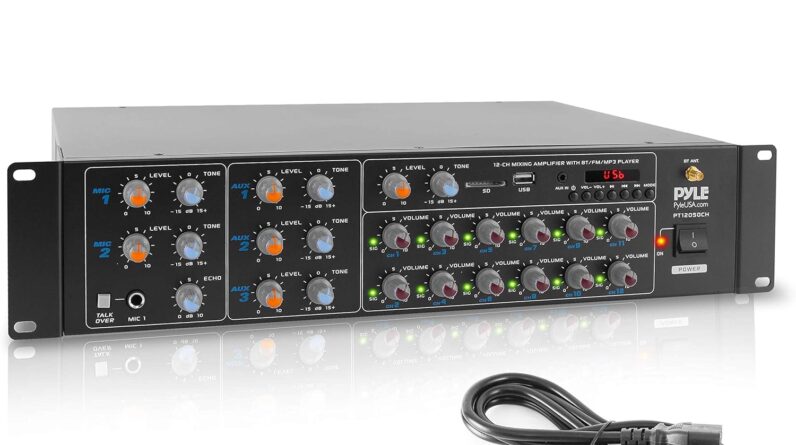
Imagine a world where your home is always in sync with your needs, anticipating your every move. With the advent of smart home appliances, this vision is becoming a reality. These innovative devices offer a range of benefits that go beyond convenience and efficiency. From energy savings to improved security, they are transforming the way we live, making our daily routines smoother and more enjoyable. In this article, we will explore the advantages of using smart home appliances and how they can enhance your lifestyle.
Convenience
Living in a smart home provides you with unparalleled convenience and ease. With the help of smart home appliances, you can simplify and streamline various tasks, saving you time and effort.
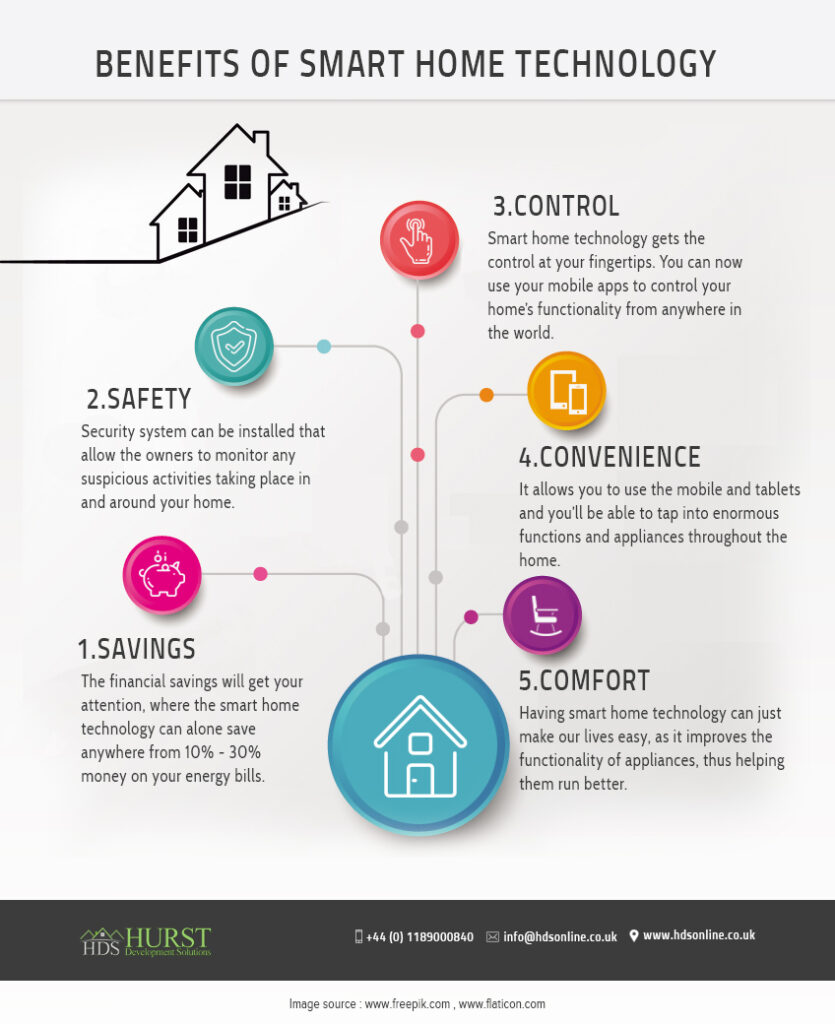
This image is property of hdsonline.co.uk.
Remote Control
Smart home appliances, such as smart TVs and smart speakers, come with remote control capabilities. This means that you can conveniently control and operate these appliances from anywhere in your home, without having to physically be near them. Whether you’re in your bedroom or relaxing on the couch, you can easily adjust the settings or change channels with just a few taps on your smartphone or through voice commands.
Automation
Smart home appliances offer automation features that can make your life more efficient. You can program your smart thermostat to adjust the temperature based on your schedule, ensuring a comfortable living environment. Similarly, you can set your smart lighting to turn on and off at specific times, enhancing energy efficiency and providing a sense of security when you’re away from home.
Voice Control
One of the most convenient features of smart home appliances is voice control. With voice assistants like Amazon Alexa or Google Assistant, you can control multiple appliances just by using your voice. Whether it’s turning on the lights, adjusting the thermostat, or playing your favorite music, you can simply ask your smart speaker to do it for you. This hands-free operation not only saves time but also adds a touch of sophistication to your daily routines.
Easy Monitoring
Smart home appliances enable easy monitoring of your home’s various systems and functions. For instance, you can use a smart security camera to keep an eye on your property, even when you’re not physically there. Additionally, smart energy monitoring systems allow you to track your energy consumption in real-time, helping you identify areas where you can reduce usage and save on utility bills. Monitoring the status and performance of your appliances becomes effortless, giving you peace of mind and making it easier to maintain your home.
Energy Efficiency
By incorporating smart home appliances into your living space, you can significantly improve energy efficiency. These appliances help you monitor and optimize your energy consumption, leading to reduced utility bills and a greener lifestyle.
Smart Energy Monitoring
Smart energy monitoring systems provide you with real-time insights into your energy usage. By tracking your consumption patterns, you can identify energy-intensive appliances or behaviors and make adjustments accordingly. Awareness of your energy consumption empowers you to make informed decisions about where and how you can reduce usage, resulting in lower energy bills and a reduced carbon footprint.
Smart Thermostat
A smart thermostat is a valuable addition to any home. It allows you to remotely control and schedule the temperature settings, ensuring efficient heating and cooling. With the ability to adjust the thermostat based on occupancy or time of day, you can avoid unnecessary energy waste. Additionally, some smart thermostats learn your habits and preferences, automatically adjusting settings to optimize energy usage while maintaining a comfortable environment.
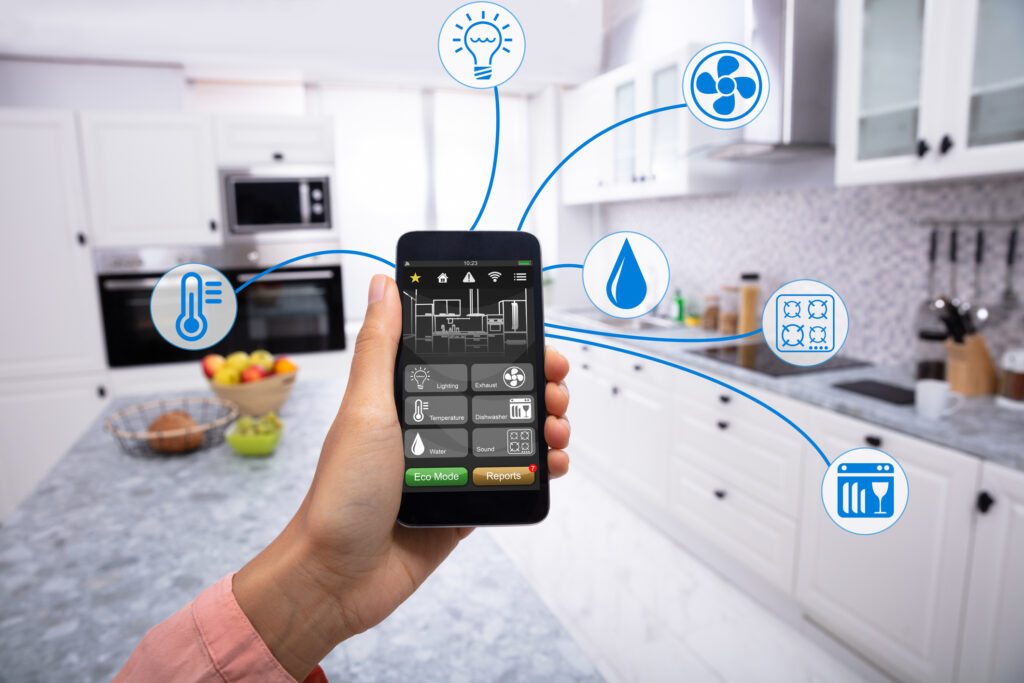
This image is property of d12mivgeuoigbq.cloudfront.net.
Efficient Lighting
Smart lighting systems bring energy-efficient and convenient lighting solutions to your home. With features like motion sensors and scheduled timers, you can ensure that lights are only active when needed. Moreover, dimming capabilities allow you to customize the brightness to suit different activities, saving energy and creating a pleasant ambiance. LED bulbs, commonly used in smart lighting systems, are also long-lasting, further reducing maintenance and replacement costs.
Appliance Optimization
Smart home appliances offer features that optimize their energy consumption. For example, smart washers and dryers can automatically adjust their cycles based on the load size, saving water and electricity. Smart dishwashers can detect the dirtiness of dishes and adjust the cleaning intensity accordingly, optimizing energy usage. By investing in these appliances, you can minimize wasteful energy consumption while still enjoying the convenience they provide.
Cost Savings
Not only do smart home appliances enhance convenience and energy efficiency, but they also lead to significant cost savings for homeowners in the long run.
Energy Consumption Optimization
Smart home appliances enable you to optimize your energy consumption by providing you with valuable insights and automation features. By identifying energy-hungry appliances, adjusting settings, and utilizing scheduled control, you can reduce your energy usage, resulting in lower utility bills. The ability to monitor and adjust your energy consumption in real-time empowers you to make more informed decisions about your energy usage, leading to cost savings.
Reduced Utility Bills
With increased energy efficiency through smart home appliances, you can expect to see considerable reductions in your utility bills. By utilizing features such as automatic power-off, smart scheduling, and efficient appliances, you can minimize wasted energy and enjoy the benefits of lower monthly expenses. Over time, these savings can add up, making a noticeable difference in your household budget.
Long-Term Savings
While the upfront cost of smart home appliances may be higher compared to traditional ones, the long-term savings they offer justify the investment. By optimizing energy consumption, reducing utility bills, and enhancing efficiency, these appliances pay for themselves over time. Additionally, smart home appliances are often built with durability and longevity in mind, reducing the need for frequent replacements and repair costs.
Preventive Maintenance
Smart home appliances often come with built-in diagnostic features that can detect potential issues before they become major problems. For example, a smart refrigerator can monitor the temperature and alert you if it’s not within the recommended range for storing food safely. These proactive notifications allow you to address the issue early on, preventing costly breakdowns and ensuring your appliances are in optimal working condition. By taking preventive measures, you can save money on repairs and extend the lifespan of your appliances.
Security
Safety and security are paramount concerns for homeowners, and smart home appliances offer a range of features that enhance the overall security of your living space.
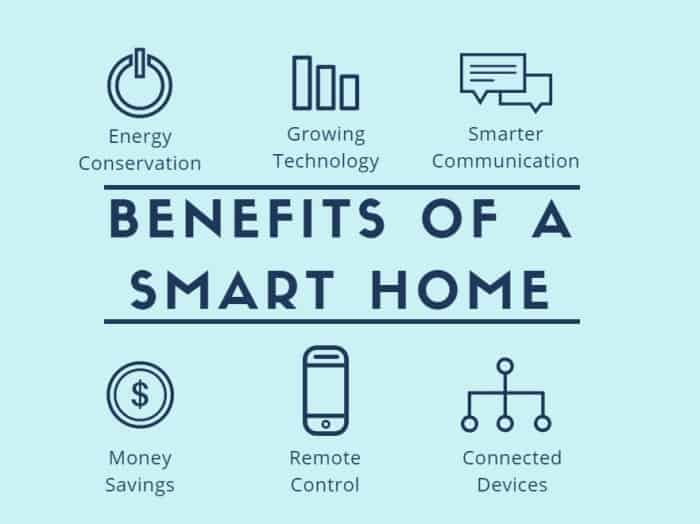
This image is property of devtechnosys.com.
Smart Locks
Smart locks provide convenient and secure access control to your home. Whether you want to grant temporary access to guests or remotely lock and unlock your doors, smart locks offer greater flexibility and peace of mind. Some smart lock systems can even detect when you approach your home and automatically unlock the door for you, eliminating the need for fumbling with keys. With smart locks, you have complete control over who enters your home.
Surveillance Cameras
Smart surveillance cameras enable you to monitor your property 24/7, enhancing your home’s security. These cameras can be accessed remotely, allowing you to check in on your home from anywhere. Many smart cameras also offer motion detection and real-time alerts, notifying you of any suspicious activity. The presence of surveillance cameras acts as a deterrent to potential intruders, significantly reducing the risk of burglaries or other security breaches.
Automated Alarms
Smart home automation extends to security systems, providing enhanced protection for your home. Integrated with motion sensors and door/window sensors, smart alarm systems can detect and alert you to any unauthorized entry attempts. These systems can also be configured to send notifications directly to your smartphone, enabling you to take immediate action or contact the authorities if necessary. With automation, you can have peace of mind knowing that your home is protected, even when you’re not physically there.
Safety Notifications
Smart home appliances offer safety notifications that keep you informed about potential hazards or emergencies. For instance, smart smoke detectors can alert you to the presence of smoke or fire, allowing you to respond promptly and mitigate the risk of extensive damage. Carbon monoxide detectors can also send alerts if they detect dangerous levels of this odorless gas, giving you sufficient time to evacuate and seek help. These real-time notifications provide an additional layer of protection and help keep your loved ones safe.
Improved Home Management
Smart home appliances revolutionize the way you manage your home, making it more efficient and organized. From remote access to appliances to smart scheduling, these features simplify your day-to-day routines.
Remote Access to Appliances
Gone are the days of worrying if you left your appliances on at home. With smart home technology, you can remotely control and monitor your appliances from anywhere. Whether it’s preheating your oven on your way home or checking if you turned off the lights after leaving, the ability to access and control your appliances gives you peace of mind and saves you from unnecessary trips back home.
Smart Scheduling
Smart home appliances allow you to create customized schedules for various tasks, making your home management a breeze. For instance, with a smart washing machine, you can set it to start a cycle at a specific time when energy prices are lower, maximizing cost savings. Likewise, you can schedule your smart robot vacuum cleaner to clean your floors while you’re at work, returning to a clean home. Smart scheduling simplifies your routines, freeing up time for other activities.
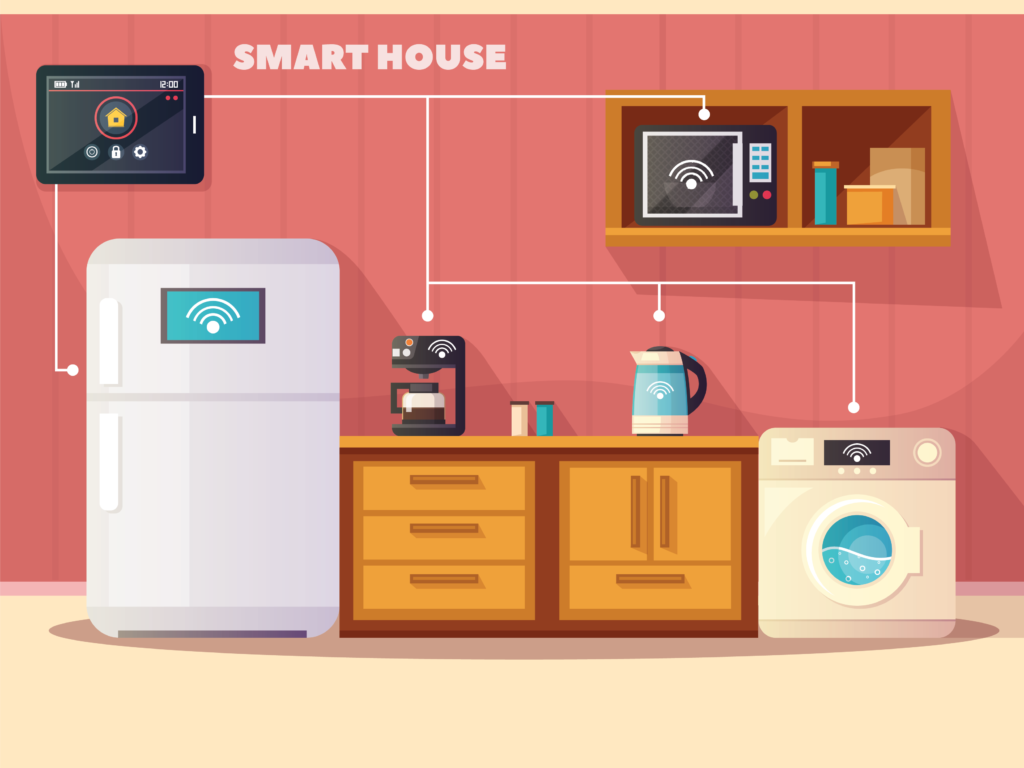
This image is property of d12mivgeuoigbq.cloudfront.net.
Inventory Management
Keeping track of your pantry items, groceries, and household supplies becomes effortless with smart home appliances. Smart refrigerators can monitor the expiration dates of your food items and send you reminders to use them before they spoil. Some models even have built-in cameras that allow you to see the contents of your fridge remotely, ensuring you never forget what you need to purchase. Smart home management systems promote better organization and minimize waste, saving you time and money.
Appliance Diagnostics
Smart home appliances often come with diagnostic features that enable you to troubleshoot issues without the need for professional assistance. From error codes on your smart washing machine to self-diagnosing ovens, these appliances make it easier to identify problems and find solutions. Not only does this save you money on service calls, but it also reduces downtime, ensuring your appliances are up and running as quickly as possible.
Enhanced Safety
When it comes to the safety of your home and loved ones, smart home appliances offer a range of features that provide peace of mind and immediate assistance in case of emergencies.
Fire and Carbon Monoxide Detection
Smart home appliances are equipped with advanced sensors that can detect the presence of smoke, fire, or dangerous levels of carbon monoxide. Smart smoke detectors can send alerts directly to your smartphone, allowing you to take prompt action or contact emergency services if needed. These early detection systems significantly reduce the risk of extensive damage or harm caused by fires or carbon monoxide leaks, giving you valuable time to evacuate safely.
Water Leak Detection
Water leaks in your home can lead to significant damage and costly repairs. Smart home appliances, such as water leak detectors, can monitor your plumbing system for signs of leaks or abnormal water flow. Upon detection, these devices send real-time alerts, allowing you to address the issue before it escalates. By preventing water damage and minimizing potential mold growth, these smart appliances help protect your home and preserve its structural integrity.
Real-Time Alerts
Smart home appliances offer real-time alerts that keep you informed about the status of various systems in your home. Whether it’s a notification about a door or window left open or an alert indicating a sudden change in temperature, these notifications provide immediate feedback on potential security or safety concerns. By staying informed, you can take appropriate action and prevent any potential incidents from escalating.
Emergency Services Integration
Smart home appliances can integrate seamlessly with emergency services, ensuring quick responses in critical situations. For example, some smart alarm systems are directly connected to emergency services, enabling them to dispatch assistance to your home immediately when triggered. This integration enhances the overall safety of your home and can be especially crucial for individuals who may need additional support or have medical conditions that require immediate attention.
Lifestyle and Entertainment
Smart home appliances not only enhance the functionality and security of your home but also offer new ways to enjoy your living space and entertain guests.
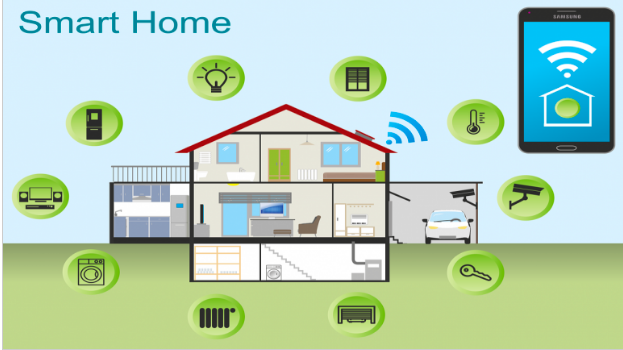
This image is property of hometriangle.com.
Smart Entertainment Systems
Imagine having a home theater system that automatically adjusts the lighting, temperature, and sound based on your preferences. Smart entertainment systems offer immersive and customized experiences, allowing you to enjoy movies, music, and games in a whole new way. With just a few taps on your smartphone or through voice commands, you can create the perfect ambiance for a movie night or a relaxing evening at home.
Customized Experiences
Smart home appliances enable personalized experiences tailored to your preferences. For example, smart speakers like Amazon Echo or Google Home can play your favorite music playlist or recommend new songs based on your listening history. You can also program your smart lighting to create different moods for different occasions, whether it’s a cozy dinner party or a lively get-together. With customization options, you can create an environment that reflects your personality and sets the tone for memorable experiences.
Home Automation for Parties
Throwing a party becomes easier and more enjoyable with smart home automation. You can program your smart lighting to create a vibrant atmosphere, synchronize your speakers for music throughout the house, and even set up automated notifications for door access control. With the ability to control various aspects of your home simultaneously, you can focus on hosting and entertaining your guests, knowing that your smart home appliances have your back.
Integration with Music and Video Streaming Services
Smart home appliances seamlessly integrate with popular music and video streaming services, enhancing your entertainment options. Whether it’s playing your favorite songs from Spotify or watching the latest shows on Netflix, you can access and control these services effortlessly through your smart devices or voice commands. The integration of smart home appliances with these platforms ensures a seamless and immersive entertainment experience for you and your family.
Accessibility
Smart home appliances offer exceptional accessibility features that cater to individuals with disabilities or specific needs. These features promote independence, improve quality of life, and make everyday tasks more manageable.
Smart Home for Disabilities
Smart home appliances can be customized to meet the specific needs of individuals with disabilities. From voice control and remote access to automated systems, these appliances offer accessibility features that enable greater independence. For example, individuals with limited mobility can control lighting, temperature, and entertainment systems through voice commands or smartphone apps, eliminating the need for physical interaction. Smart home technology opens up a world of possibilities and convenience for people with disabilities.
Assisted Living
Smart home appliances play a crucial role in assisted living, providing support to individuals who may require additional assistance or monitoring. For instance, smart medication dispensers can remind individuals to take their medication at the right time, greatly benefiting seniors or individuals with chronic conditions. Additionally, smart sensors and monitoring systems can alert caregivers or family members in case of any emergency or abnormal activity, ensuring timely assistance and peace of mind.
Voice Control for the Elderly
Voice control is a particularly valuable feature for the elderly, as it simplifies everyday tasks and reduces physical strain. With voice assistants like Amazon Alexa or Google Assistant, seniors can control various aspects of their home, including lighting, temperature, and entertainment systems, through simple voice commands. Voice control eliminates the need for complicated interfaces or manual adjustments, making it easier for the elderly to navigate their living space.
Hands-Free Operation
Smart home appliances enable hands-free operation, which is especially beneficial for individuals with limited mobility or dexterity. By utilizing voice control or automated features, tasks that would typically require physical interaction can be accomplished seamlessly. From turning on the lights to adjusting the thermostat, smart appliances empower individuals to manage their homes independently, regardless of their physical capabilities.
Environmental Impact
Smart home appliances contribute to a more sustainable and environmentally friendly lifestyle. By promoting energy efficiency, water management, and eco-friendly features, these appliances help reduce your carbon footprint and support sustainable living practices.
Reduced Carbon Footprint
One of the key advantages of smart home appliances is their ability to reduce your carbon footprint. By optimizing energy consumption, minimizing wasteful practices, and utilizing renewable energy sources, these appliances help lower greenhouse gas emissions. Whether it’s through energy-efficient appliances, smart lighting, or renewable energy integration, the use of smart home technology contributes to a healthier planet by reducing the burden on natural resources and decreasing the environmental impact of your home.
Sustainable Living
Smart home appliances encourage sustainable living by promoting eco-friendly behaviors and practices. For instance, smart energy monitoring systems provide you with insights into your energy usage, enabling you to make informed decisions about how to reduce consumption. Integration with renewable energy sources, such as solar panels, allows you to harness clean energy and minimize reliance on fossil fuels. By adopting smart home technology, you actively contribute to a more sustainable future.
Smart Water Management
Water is a precious resource, and smart home appliances help conserve it through efficient water management. Smart irrigation systems use weather data and soil moisture sensors to determine optimal watering schedules, minimizing water wastage. Smart showerheads and faucets can regulate water flow, reducing unnecessary usage without sacrificing comfort. These water-saving features, combined with real-time monitoring and control, enhance your home’s water efficiency and contribute to sustainable water management.
Eco-Friendly Features
Smart home appliances often incorporate eco-friendly features that align with sustainable living principles. For example, smart laundry machines can adjust water and detergent usage based on load size, reducing water and energy waste. Smart thermostats optimize heating and cooling systems to minimize resource consumption while maintaining comfort. By investing in appliances with eco-friendly features, you actively contribute to a greener lifestyle and lower environmental impact.
Integration and Compatibility
Smart home appliances are designed to work harmoniously with each other and existing systems in your home. Integration and compatibility ensure a seamless experience and empower you to build a smart home ecosystem that suits your needs.
Smart Home Ecosystems
Smart home ecosystems consist of interconnected devices that work together to provide a comprehensive and integrated experience. By establishing a smart home ecosystem, you can control and manage various appliances from a single platform or app. For example, using a smart home hub, you can control your smart lighting, security cameras, and thermostats from one central location. These ecosystems simplify the overall management of your smart home and enhance the interoperability of different devices.
Interconnectivity of Devices
Smart home appliances are designed to connect and communicate with each other, creating a network that enables automation and seamless control. For instance, motion sensors can trigger the lights to turn on, thermostats can adjust the temperature based on occupancy, and security cameras can be integrated with alarm systems. The interconnectivity of devices ensures that your smart home functions cohesively, enhancing convenience, efficiency, and security throughout your living space.
Compatibility with Existing Systems
Smart home appliances are designed to be compatible with existing systems in your home, making it easy to upgrade and integrate smart technology. Whether it’s replacing traditional thermostats with smart ones or retrofitting existing lighting fixtures with smart bulbs, the compatibility of these appliances ensures a smooth transition to a smarter living environment. This compatibility allows you to gradually transform your home into a smart one without the need for extensive renovations or replacements.
Smart Home Technology Standards
To ensure seamless integration and compatibility between various devices and manufacturers, smart home technology standards have been established. These standards set guidelines for interoperability, ensuring that devices from different brands can work together. Examples of such protocols include Zigbee and Z-Wave, which enable wireless communication between devices. By adhering to these standards, smart home appliances provide consumers with greater flexibility and choice, allowing them to create a smart home ecosystem that suits their preferences.
In conclusion, owning smart home appliances offers numerous benefits across various aspects of your life. From the convenience and ease of remote control to energy efficiency, cost savings, and improved security, these appliances revolutionize the way you live and manage your home. Additionally, smart home appliances enhance accessibility, integrate seamlessly with entertainment systems, and contribute to sustainable living practices, reducing your environmental impact. With the compatibility and interconnectivity of these appliances, building a smart home ecosystem that suits your needs becomes effortless. Invest in smart home appliances and unlock a world of convenience, efficiency, and enjoyment.


